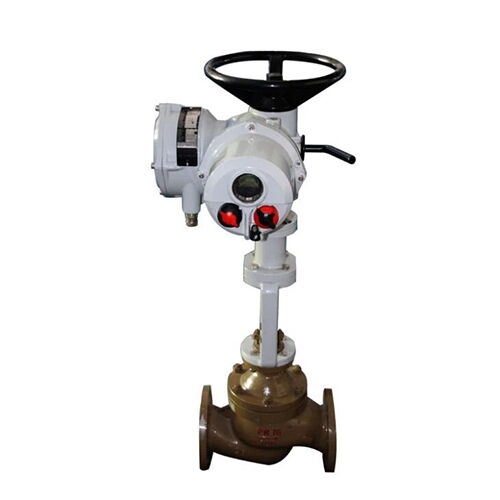Advantages of Intelligent Electric Control Valves
As a crucial component of modern industrial control systems, the intelligent electric control valve has seen increasingly widespread application in the field of fluid control technology. This type of valve significantly enhances the efficiency and reliability of industrial processes through precise control and flexible adjustment methods. This article will explore several key functions and advantages of intelligent electric control valves, highlighting why they have become indispensable in contemporary industrial systems.
About Intelligent Electric Control Valves
An intelligent electric control valve is a device that regulates fluid flow through an electric actuator and intelligent control system. It combines the mechanical structure of traditional control valves with modern electronic technology, achieving precise control through built-in microcomputers and sensors. The working principle of an intelligent electric control valve involves receiving control signals to adjust the valve opening, thereby controlling parameters such as fluid flow, pressure, and temperature.
Key Functions
The intelligent electric control valve boasts several key functions that distinguish it from traditional control valves. These features not only enhance its performance but also contribute to its versatility and reliability in various industrial applications. Here are the primary functions that make the intelligent electric control valve a vital component in modern control systems.
1. Flow Characteristic Correction
Intelligent electric control valves can perform precise flow characteristic corrections. Using a microcomputer within a servo amplifier, the system calculates signals based on preset characteristic parameters, establishing a digital function relationship between input signals and valve displacement. This nonlinear adjustment simplifies the selection and alteration of flow characteristics, which is crucial for enhancing control system performance. Compared to traditional methods, intelligent electric control valves offer a more advanced and flexible solution.
These valves can achieve various flow characteristic changes, such as equal percentage-standard linear, quick open-equal percentage, and parabolic-equal percentage, meeting the demands of different application scenarios.
2. PI Control
Proportional-Integral (PI) control is another key function of intelligent electric control valves. When the valve receives a transmitter signal, the microcomputer compares it with the setpoint signal and calculates according to preset PI parameters, issuing corresponding control signals to adjust the valve until signal equilibrium is achieved. This PI control function provides a cost-effective and superior performance control system that can directly accept signals from field transmitters, accomplishing tasks that conventional PID controllers may find challenging.
Particularly in industrial applications with long delay times, such as temperature control in furnaces, the PI control function of intelligent electric control valves can significantly reduce system errors and accelerate response times, thereby enhancing control performance.
3. Additional Functions
Intelligent electric control valves also integrate various other functions to improve their adaptability and reliability.
Change of Positive and Negative Action: Allows users to adjust the control mode based on specific application needs, enhancing versatility.
Fault Position Indication, Diagnosis, and Alarm: Provides fault detection and timely alarms to ensure safe system operation.
Electric Braking and Self-locking Functions: Enhance the valve's stability and safety, preventing unintended valve actions in emergency situations.
Application Advantages
Intelligent electric control valves offer significant advantages in modern industrial control systems.
- High Precision Control: Achieves high-precision flow, pressure, and temperature control through an intelligent control system.
- Strong Flexibility: Offers a selection of various flow characteristics and control modes, making it suitable for complex industrial environments.
- High Reliability: Built-in fault diagnosis and alarm functions enhance system safety and reliability.
- Easy Maintenance: The intelligent control and adjustment methods reduce maintenance complexity and costs.
As a key component of modern industrial control systems, the intelligent electric control valve significantly improves the efficiency and reliability of industrial processes through its precise control, flexible adjustment methods, and various intelligent functions. Its advanced features in flow characteristic correction, PI control, and fault diagnosis make it an indispensable tool in industrial control.

